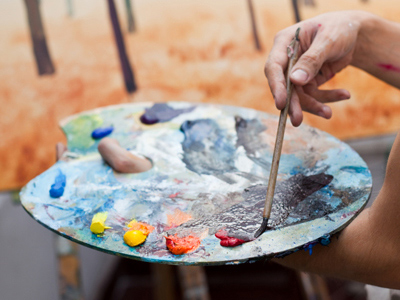
Ask the AI Tutor
Need help with Asking Questions? Ask our AI Tutor!
AI Tutor - Lucy
Connecting with Tutor...
Please wait while we establish connection

An artist who had painted a portrait of a famous person from history may have got to know the subject very well indeed!
Asking Questions
In history we are detectives of the past. This quiz helps you practise asking good questions about people, places and events so you discover clearer stories.
1 .
Which of the following would mean you probably would not go down in the history books?
Inventing something amazing and life-changing
An amazing act of bravery
Living a quiet, ordinary sort of life
Changing the way things are done so that lots of people are much better off
Most famous people in history have stood out from the rest by bravery, leadership or through life-changing acts
2 .
Which of the following is not a sensible history question?
What was life like in time gone by?
What day is it tomorrow?
How are our lives different today from 100 years ago?
How have people from history changed our world?
Good historians know how to ask sensible questions to help them learn more about the past
3 .
If you time-travelled back to Victorian England and met a child your age, which question would you ask to find out more about life at the time?
What time is it?
What day is it?
What is your day to day life like?
Who is your best friend?
Finding out about everyday life can give a fascinating picture of what the past was like
4 .
How do historians find out more about artefacts from the past?
By reading about them in a book
By phoning the owners and asking about them
By making up stories and pretending they are true
By asking questions about who owned them, what they are made from and what they were used for
Historians ask all kinds of questions to help them learn more about the past
5 .
The Great Fire of London began in a baker's shop in 1666. Which question would not help you find out more about this event?
How did the fire spread?
How did the fire start?
What did the bakery look like?
How did the fire affect people's lives?
The Great Fire had a huge effect on the city of London - including a ban on wooden buildings which still exists today!
6 .
If you met someone who had painted a portrait of a famous person from history, which of the following would be a sensible question to ask?
Which is your favourite colour?
What was the famous person really like?
What time of day did you paint it?
What day did you paint it on?
Portraits took a long time to paint, so the artist may well have got to know the subject very well indeed!
7 .
When we read an account of an event from history, what's the most important question to ask?
What day was it written on?
What sort of pen was it written with?
What kind of paper is it written on?
Is this true?
Knowing whether the source of the account is trustworthy or not is really important - sometimes things get made up!
8 .
If you saw an ancient vase in a museum, which questions wouldn't help you learn more about it?
What material is it made from and what was stored in it?
Where was it made, and by whom?
How old is it and who owned it?
How long has it been at the museum and what day was it found?
The answers to all the other questions would tell you much more about the vase
9 .
When historians and archaeologists find ancient jewellery, what question would they probably not ask?
Who saw the jewellery?
What kind of person wore the jewellery and how wealthy were they?
What is the jewellery made from?
What kinds of tools may have been used to make the jewellery?
Even a small piece of jewellery can tell us a great deal about its history
10 .
Imagine you find, in your attic, a very old photograph of a lady. What sort of question might you ask about it?
Why am I not in the photograph?
Will someone take my photograph one day?
What day was the photograph taken?
Who is the lady and are we related to each other?
Your own family may have a lot of interesting history
**Unlimited Quizzes Await You! 🚀**
Hey there, quiz champ! 🌟 You've already tackled today's free questions.
Ready for more?
Ready for more?
🔓 Unlock UNLIMITED Quizzes and challenge yourself every day. But that's
not all...
not all...
🔥 As a Subscriber you can join our thrilling "Daily Streak" against other
quizzers. Try to win a coveted spot on our Hall of Fame Page.
quizzers. Try to win a coveted spot on our Hall of Fame Page.
Don't miss out! Join us now and keep the fun rolling. 🎉
**Unlimited Quizzes Await You! 🚀**
Hey there, quiz champ! 🌟 You've already tackled today's free questions. Ready for more?
🔓 Unlock UNLIMITED Quizzes and challenge yourself every day. But that's not all...
🔥 As a Subscriber you can join our thrilling "Daily Streak" against other quizzers. Try to win a coveted spot on our Hall of Fame Page.
Don't miss out! Join us now and keep the fun rolling. 🎉






